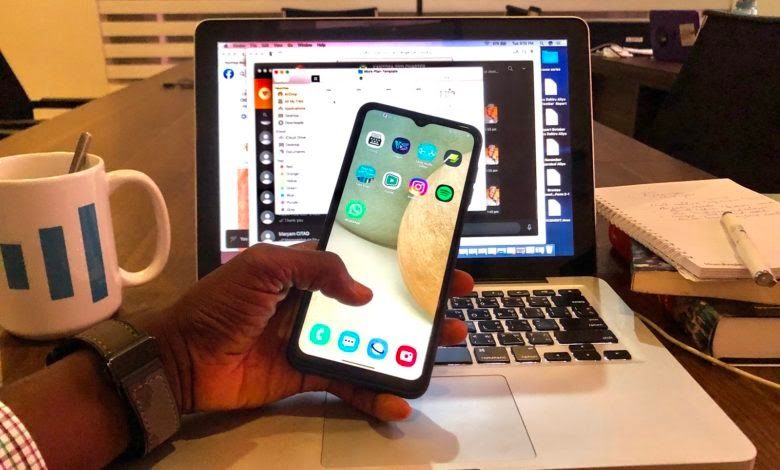#KeepItOn: Nigeria’s Disturbing Move Towards Digital Authoritarianism
The recent suspension of Twitter and proposed registration of social media services could open a flood gate of regulations and censorship.

The suspension of Twitter and directive to prosecute users of the social media service in Nigeria is a disturbing slippery slope towards digital authoritarianism and the shrinking of online civic spaces.
According to a statement by the country’s Ministry of Information and Culture on Friday, June 4, the government was indefinitely suspending the operations of the American social media company in Nigeria, citing the persistent use of the platform for activities that are capable of “undermining Nigeria’s corporate existence.”
The restriction, which kicked off around midnight, came two days after Twitter removed a tweet by President Muhammadu Buhari that violated the platform’s abusive behaviour policy.
Authorities also directed the National Broadcasting Commission (NBC) to immediately commence licensing all OTT and social media operations in Nigeria.
The government is initiating a disturbing precedent that would have an impact on the use of internet services in the country and could establish a pathway towards government regulation and censorship of digital media as well as shrinking of online civic space.
Olumide Akpata, the President of Nigeria’s umbrella body of lawyers, the Nigerian Bar Association (NBA) in a series of tweets, has said that the association finds no constitutional or legal authority to support the peremptory action of the Nigerian Government to suspend the operations of Twitter in the country.
This is not the first attempt at social media censorship in Nigeria
In 2020, Lai Mohammed, Nigeria’s Minister of Information and Culture, lamented the need for social media regulation and the role it played during the #EndSARS protest against police brutality.
“When we went to China, we could not get Google, Facebook, and Instagram. You could not even use your email in China because they made sure it is censored and well regulated,” Mohammed told members of the House Committee on Information Information, National Orientation, Ethics and Values.
A representative of the National Security Adviser was quoted telling an audience at a workshop to review the cybersecurity strategy 2020 in Nigeria’s capital, Abuja, that social media was used to disseminate subversive content and escalate tension during the recent #EndSARS protests.
In the past few years, the Government has also enacted a series of laws and policies in response to perceived concerns related to the internet, and social media use, particularly the National Cybersecurity Strategy and the 2015 Cybercrimes (Prohibition, Prevention Act), which covers diverse issues ranging from hacking, cyber-stalking, cyber-bullying, the threat of violence, distribution of racist and xenophobic materials.
Several legislations targeted at social media services have also been drafted and presented for deliberations, including the Protection from Internet Falsehood and Manipulation Bill 2019.
Another one was the anti-social media bill 2015 titled ‘A Bill for an Act to Prohibit Frivolous Petitions and other Matters Connected.’
Seun Bakare, Programmes Manager of Amnesty International Nigeria in 2019, described social media as one of the last remaining places where Nigerians can express their opinions freely.
Bakare added that the harassment of journalists and bloggers and the introduction of the Cyber Crimes Act have already shrunk the civic space and created a climate of fear.
Social media has become an essential part of the civic and democratic space in the country.
Twitter enabled an unprecedented level of organisation and mobilisation by young Nigerians agitating for #EndSARS and calling for an end to police brutality.
An estimate of the #EndSARS conversation on Twitter in Oct 2020 revealed that #EndSars reached 99 million users and had a total of 280 million impressions.
Social media have also assisted and sustained other call to action and activism, such as the #ArewaMeToo against sexual and gender-based violence in northern Nigeria, the #BringBackBackOurGirls demanding for the return of the chibok girls.
The #SayNoToSocialMediaBill was also central to public outcry and pressure that culminated with the withdrawal of the Social Media Bill.
Protecting Digital Rights and Space in Nigeria
A multi-sectoral approach is imperative to prevent the country from sliding towards control of online civic space and censorship of social media services.
These could include international diplomatic pressure to protect the fundamental principles of democracy, freedom of expression and citizen participation in governance.
On Saturday, June 5, 2021, the diplomatic missions of Canada, the Delegation of the European Union to Nigeria, the Republic of Ireland, the United Kingdom and the United States of America expressed their disappointment over the suspension of Twitter and proposed registration for other social media.
It’s unclear to what extent and timeframe the Nigerian government is willing to sustain the restrictions imposed; however, in a dramatic twist, the Presidency in a statement on Saturday used ‘temporary suspension’ unlike the earlier announcement by authorities on June 4 that the site was indefinitely suspended.
The Digital Rights and Freedom Bill, rejected previously by the president if implemented, provides protections for Internet users in Nigeria from abuses and infringement of their fundamental freedoms of expression.
Other intervention should involve collaboration between civil society and big technology companies to improve internal regulation and identification of peculiar safety concerns, such as enhancing the identification and removal of false information, inciteful materials, and online harassment.
Increasing investment in fact-checking and media literacy projects are also crucial to address some of the excuses used by the government to seek social media regulation and control.
Support Our Journalism
There are millions of ordinary people affected by conflict in Africa whose stories are missing in the mainstream media. HumAngle is determined to tell those challenging and under-reported stories, hoping that the people impacted by these conflicts will find the safety and security they deserve.
To ensure that we continue to provide public service coverage, we have a small favour to ask you. We want you to be part of our journalistic endeavour by contributing a token to us.
Your donation will further promote a robust, free, and independent media.
Donate HereStay Closer To The Stories That Matter




